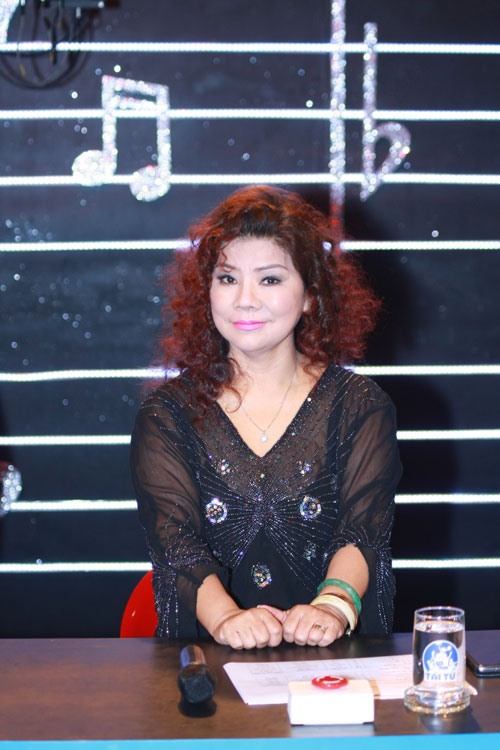 Life & Style
Life & Style

The Việt Nam Association for Rights Protection of Music Performing Artists (APPA) has the first contract to represent singer Tân Nhàn and collect copyright money.
 |
| Singer Thanh Hoa |
The Việt Nam Association for Rights Protection of Music Performing Artists (APPA) has the first contract to represent singer Tân Nhàn and collect copyright money. The association was established at the end 2016 with the approval of the Ministry of Culture, Sports and Tourism to protect the rights of Vietnamese musical artists. It is led by People’s Artist, singer Thanh Hoa, and represents many artists, including singers, instrumentalists and performers acting in musical genres. Association chairwoman Thanh Hoa spoke about how the association protects the rights of artists.
You are a veteran artist and acquainted with performing on the stage. Why did you decide to take on responsibility of protecting the rights of artists?
Seventeen years ago I asked to set up the Việt Nam Singers’ Association to promote performing activities of singers. But it was not approved. I have been performing on the stage for many years and I recognise that singers have had a great impact on the public. Artists have a big influence on audiences in general, and young audiences in particular.
However I feel sad when I see some young singers who perform well but don’t have a good relationship with their audience. As a result, I wanted to set up the association aimed at sharing experience and helping young singers to improve their communication skills.
Recently, when the Copyright Office of Việt Nam suggested establishing an association to protect the rights of performing artists, Bùi Nguyên Hùng, deputy-head of the office told me that it’s time to create your association.
I was very nervous because I thought it beyond my ability. I just intended to set up an association for just singers.
My children also opposed the plan, but Hùng encouraged me and told me that performers don’t have their own association helping them to raise their voice. So, I decided to take responsibility.
According to one statistic, there are about 15,000 artists performing in the music industry. How many music performers are there in your association?
The association is very young. We are facing many difficulties developing the association. It’s not just that performers don’t understand the value of being an association member. They also don’t understand how the association will protect their rights.
At the beginning, we had over 100 members and now this number has increased to 500.
During this time, I have met and promoted the association to State-owned art troupes across the nation. The art troupe leaders support me and ask about the criteria to become association members. The criteria are artists including people who are working in art troupes and independent artists who have music products which are performed in different media.
The labour law doesn’t mention performers. I think that it needs to have a particular payment system for performers. The APPA will conduct a survey to know how many performers are in the nation.
Could you tell us more about APPA operations?
At present, APPA has four centres, including a centre for copyright protection; centre for soft skills training; centre for event organisation and centre for performing organisation.
The centres are led by people from the association executive committee.
Many performers don’t know about APPA because we haven’t focused on marketing and advertising. We will develop a plan to make the association more popular.
How much does APPA get from the copyright money which it collects?
Performers will give 10-20 percent of copyright money collected from the internet to APPA. But this amount will increase to 30 per cent from television in the first year. It will reduce to 20 per cent in the fourth year and 10 per cent in the tenth year.
The association has to pay more to performers when it grows.
At present, many music sites collect copyright money from the users. But they pay singers only when the singers know about the business and ask for copyright money. I’m sure that APPA will collect copyright money for performers who authorise us to do this.
Are you confident now to lead the association?
Actually, this is very important and new work for me which challenges me. When I took this responsibility it means that I have to protect the rights of artists including my older colleagues, younger generation and also my rights.
I’m now confident to overcome the difficulties on the way ahead. We believe in our mission with the slogan "righteousness, accuracy and transparency". I’m enthusiastic with the new work and I hope people will support me.
I think that my success is not as a popular singer but it is a chance to explore myself.
Frankly, at the beginning I was afraid of losing my reputation. I spent all my life singing and now become a person asking for money. I thought a lot about it. However, I understand my work will help people raise their responsibilities and understand the value of an artistic product. — VNS




